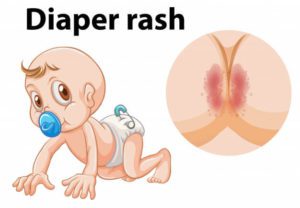Argan Oil for Babies
Argan Oil for Baby Diaper Rash

Organic argan oil is an excellent natural product for baby skin. This is because it is a thin, nongreasy oil and gets absorbed quickly. Therefore, Applying Argan Oil is suitable for all your baby’s skin needs besides baby bumps.
Some people use petroleum-based products full of chemicals that could damage your baby’s soft skin. They can be very irritating to their delicate skin and interfere with the skin’s natural protective barrier.
Argan oil is from a natural source, and you will notice quite an improvement when you apply this precious oil after each diaper change.
Here are some Amazing reasons Pure Argan Oil is a must-have natural oil for your baby’s diaper
- It helps with rash clearance and even gets rid of it slowly.
- It hydrates baby skin while preventing it from becoming dry.
- It soothes irritated skin and prevents the rash from getting worse.
- It helps with open skin areas due to irritated skin from diaper rash.[/su_list]
Argan Oil for Baby Cradle Cap

Seborrheic dermatitis is a skin disease widely known as a cradle cap, leading to inflammation caused by a fungal infection.
Baby cradle cap is a common skin condition for newborns and is characterized by:
- Sticky skin oils and scales.
- Yellow crusting and a buildup of sloughed skin cells.
- Oily or scaling skin from overactive oil glands on the scalp.
This is how Argan Oil takes care of your baby’s cradle cap:
- It helps with the softening of the scales on baby skin.
- It soothes a possibly irritated red scalp while alleviating the rash caused by Acne.
- It also contains Vitamin E and phenols to nourish your baby’s scalp and hair.
- It rejuvenates your baby’s brittle hair while softening it.
- It helps with patchy scaling and thick crusts on the scalp and balances baby skin sebum production.
- It contains essential fatty acids, such as linoleic and oleic acids, which take care of free radicals that could affect your baby’s hair.
- It promotes blood flow on your baby’s scalp and healthy hair.
- It contains Squalene and Sterols that promote your baby’s hair growth.
- It is full of anti-inflammatories and takes care of possible inflammation from the cradle.
- It protects the baby’s soft skin from infections and possible skin damage caused by Acne.
Argan Oil contains valuable nutrients for your baby’s eczema and psoriasis. It is rich in Vitamin E, antioxidants and anti-inflammatory, which take care of itchiness and possible inflammation.
Argan Oil for Baby’s Skin: Eczema and Psoriasis
Here are other ways pure Argan oil will take care of baby eczema and psoriasis:
- It prevents possible worsening of eczema and psoriasis by soothing and reducing red rashes.
- It alleviates the burning sensations and excessive scratching that may further damage your baby’s soft skin.
- It contains Omega 6 fatty acids to naturally moisturize your baby’s skin and prevent it from being excessively dry.
- It helps with collagen formation and the healing of potentially damaged skin while moisturizing and nourishing cracked or bleeding skin patches.
- It contains Sterols, which are vital in reducing pain from psoriasis and eczema. It also acts as a barrier against free radicals that may irritate the affected areas.
Important:
Argan Oil is undoubtedly an ideal natural alternative to baby oil products and other products that are full of chemicals. However, even though your baby’s skin is rarely allergic to applying Argan Oil, ensure you test a few drops to confirm baby’s comfort. It is always better to be safe.
Frequently Asked Questions
Is argan oil good for baby’s hair?
Applying a little Argan Oil to the scalp reduces scalp cradlecap and also improves baby hair growth. This product relieves frizziness and dries hair. It can even hydrate brittle and sagging hairs.
What are the health benefits of argan oil on baby skin?
Argan Oil reduces skin rashes and blemishes for babies since argan oil is not greasy but will absorb quickly into the skin, making them suitable for babies. Argan oil can be applied to the affected areas and reduces the severity of skin irritation.

